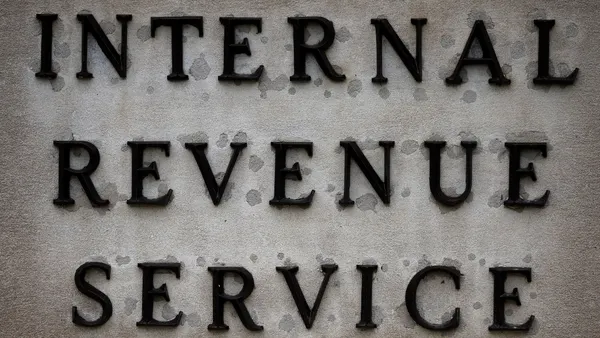Dive Brief:
-
"We’re looking at sending checks to Americans immediately," Mnuchin said at the press conference. "And I mean now, in the next two weeks." Details are still being worked out, but cash payments could total $500 billion disbursed in two tranches, the first before the end of April. It would be means-tested to ensure money went to the most needy, The Wall Street Journal reported. The plan also envisions direct payments to small businesses.
-
While the package is mostly aimed at supplying the shaky economy with an influx of cash, a specific effort will go towards relieving particularly embattled industries, including the airlines, which will receive a $50 billion payout if the package passes. In a closed-door meeting, Mnuchin reportedly referred to the coronavirus pandemic as being worse for airlines than were the Sept. 11 attacks.
Dive Insight:
This would not be the first time the federal government has used fiscal policy to shore up the economy during a turbulent time. In 2008, Congress passed the Troubled Asset Relief Program (TARP), a $700 billion package intended to keep the financial system solvent in the midst of the Great Recession.
This time around, as the standard facets of American life are swiftly put on hold, immediate intervention is considered urgent. As it stands, the proposed package will cost at least $150 billion more than TARP, and would include more widely disbursed benefits, such as tax cuts and the direct payments, the Washington Post reported.
Also unlike TARP, government officials, with the newly proposed package, hope to include greater assistance specifically for small businesses. The relief would come at a dire time for countless businesses, including restaurants, gyms and retail stores, that are being directed to cooperate with widespread closure policies.
It's not clear how the proposal will fare in Congress, although there's broad recognition that action is needed. Senate Minority Leader Charles E. Schumer (D-NY) is working on a $750 billion proposal as a democratic alternative to Mnuchin’s plan, the Post reported. Schumer would focus more on expanded unemployment insurance, funds for schools and public transportation, Medicaid funding, loan assistance, and indefinite halting of evictions and foreclosures.
The proposal would be the federal government's third legislative package in response to the swiftly moving outbreak. President Trump on March 6 signed an emergency spending measure to pump $8.3 billion into federal health agencies to help them deal with the crisis, and last week the House passed legislation that gives workers two weeks of paid sick leave and up to three months of paid family leave. It also helps set the stage for expanding virus testing by allowing the costs of tests to be covered by insurance and federal programs. There are also provisions to make emergency food assistance more widely available and that add to unemployment insurance benefits.













